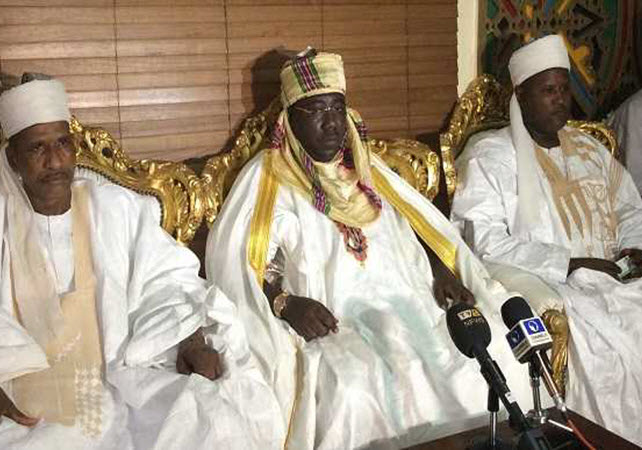There are no products in your shopping cart.
| 0 Items | £0.00 |


OFFICIALS of the Kaduna State chapter of the Miyetti Allah Cattle Breeders Association of Nigeria (Macban) have extended an olive branch to the Southern Kaduna People’s Union (Sokapu) asking it to meet up and discuss ways of ending the violence in its domain.
Over recent years southern Kaduna has been a hotbed of violence as Muslim Fulani herdsmen and local Christian farmers have repeatedly clashed. leading to a heavy loss of life. Many local leaders have blamed Macban for the violence saying it has been importing Fulanis from across West Africa to carry out these murderous attacks.
However, in an indication that the bloodshed may be coming to an end, Haruna Usman Tugga, the chairman of the Kaduna State chapter of Macban, said the era of using violence and brutality to solve problems must end. He added that advanced discussion, dialogue and shifting grounds in order to accommodate other tribal groups with opposing views should be deployed by the two groups.
Mr Tugga lamented the fact that Sokapu as a group is still living and thinking behind civilisation. He added that the southern Kaduna tribesmen have not come to terms with the fact that dialogue is the best way out of any conflicts.
“Miyetti Allah and its members have been stoic, strong and continued to survive in painful silence with remarkable candour. The umbrella body has never attacked the state or security agencies and even the presidency which have all been doing everything within their powers at their disposal.
“We at the Miyetti Allah have appreciated every efforts that have ever been made by the recognised and patriotic security agencies particularly the Operation Safe Haven headed by a professional and patriotic soldier in person of Major General Dominic Onyemulu and other security agencies operating in the area with government at all levels. Emphatically, we want to register in strong terms to Sokapu and their sponsors who are hiding in the dark that the Fulani tribes and clans are here to stay.
“We are more indigenous, more patriotic, more industrious and much more resilient than them,” Mr Tugga added.